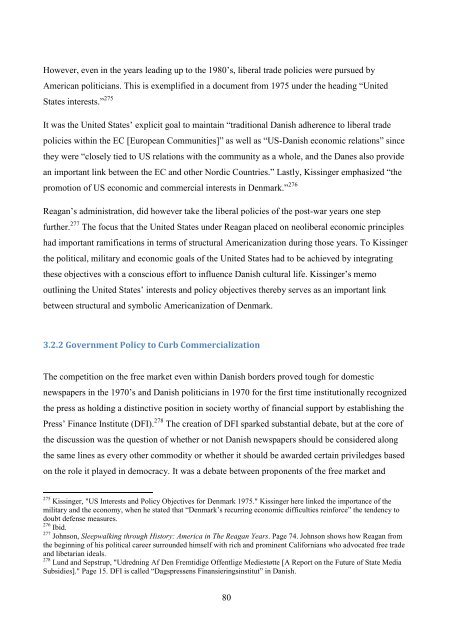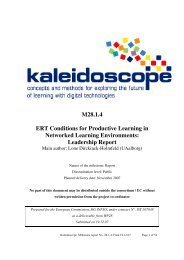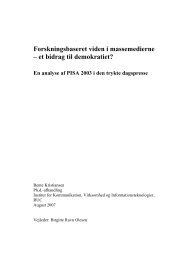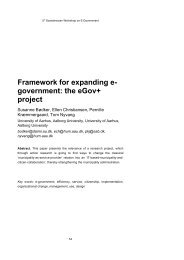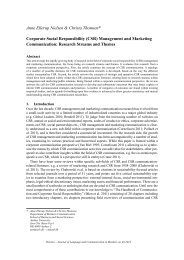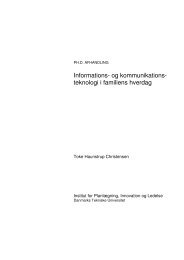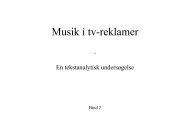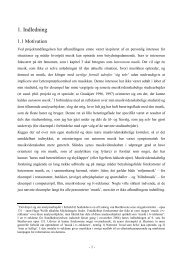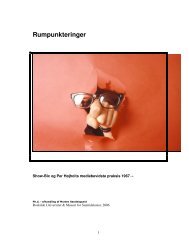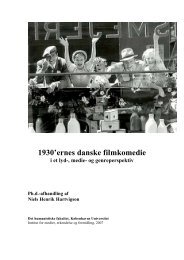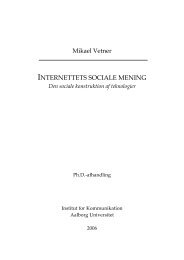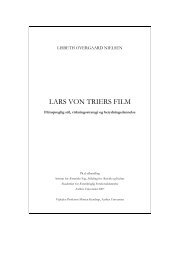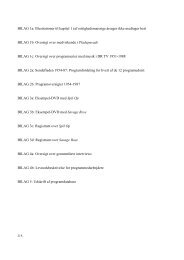The Jeremiad Over Journalism
The Jeremiad Over Journalism
The Jeremiad Over Journalism
You also want an ePaper? Increase the reach of your titles
YUMPU automatically turns print PDFs into web optimized ePapers that Google loves.
However, even in the years leading up to the 1980‘s, liberal trade policies were pursued by<br />
American politicians. This is exemplified in a document from 1975 under the heading ―United<br />
States interests.‖ 275<br />
It was the United States‘ explicit goal to maintain ―traditional Danish adherence to liberal trade<br />
policies within the EC [European Communities]‖ as well as ―US-Danish economic relations‖ since<br />
they were ―closely tied to US relations with the community as a whole, and the Danes also provide<br />
an important link between the EC and other Nordic Countries.‖ Lastly, Kissinger emphasized ―the<br />
promotion of US economic and commercial interests in Denmark.‖ 276<br />
Reagan‘s administration, did however take the liberal policies of the post-war years one step<br />
further. 277 <strong>The</strong> focus that the United States under Reagan placed on neoliberal economic principles<br />
had important ramifications in terms of structural Americanization during those years. To Kissinger<br />
the political, military and economic goals of the United States had to be achieved by integrating<br />
these objectives with a conscious effort to influence Danish cultural life. Kissinger‘s memo<br />
outlining the United States‘ interests and policy objectives thereby serves as an important link<br />
between structural and symbolic Americanization of Denmark.<br />
3.2.2 Government Policy to Curb Commercialization<br />
<strong>The</strong> competition on the free market even within Danish borders proved tough for domestic<br />
newspapers in the 1970‘s and Danish politicians in 1970 for the first time institutionally recognized<br />
the press as holding a distinctive position in society worthy of financial support by establishing the<br />
Press‘ Finance Institute (DFI). 278 <strong>The</strong> creation of DFI sparked substantial debate, but at the core of<br />
the discussion was the question of whether or not Danish newspapers should be considered along<br />
the same lines as every other commodity or whether it should be awarded certain priviledges based<br />
on the role it played in democracy. It was a debate between proponents of the free market and<br />
275 Kissinger, "US Interests and Policy Objectives for Denmark 1975." Kissinger here linked the importance of the<br />
military and the economy, when he stated that ―Denmark‘s recurring economic difficulties reinforce‖ the tendency to<br />
doubt defense measures.<br />
276 Ibid.<br />
277 Johnson, Sleepwalking through History: America in <strong>The</strong> Reagan Years. Page 74. Johnson shows how Reagan from<br />
the beginning of his political career surrounded himself with rich and prominent Californians who advocated free trade<br />
and libetarian ideals.<br />
278 Lund and Sepstrup, "Udredning Af Den Fremtidige Offentlige Mediestøtte [A Report on the Future of State Media<br />
Subsidies]." Page 15. DFI is called ―Dagspressens Finansieringsinstitut‖ in Danish.<br />
80


